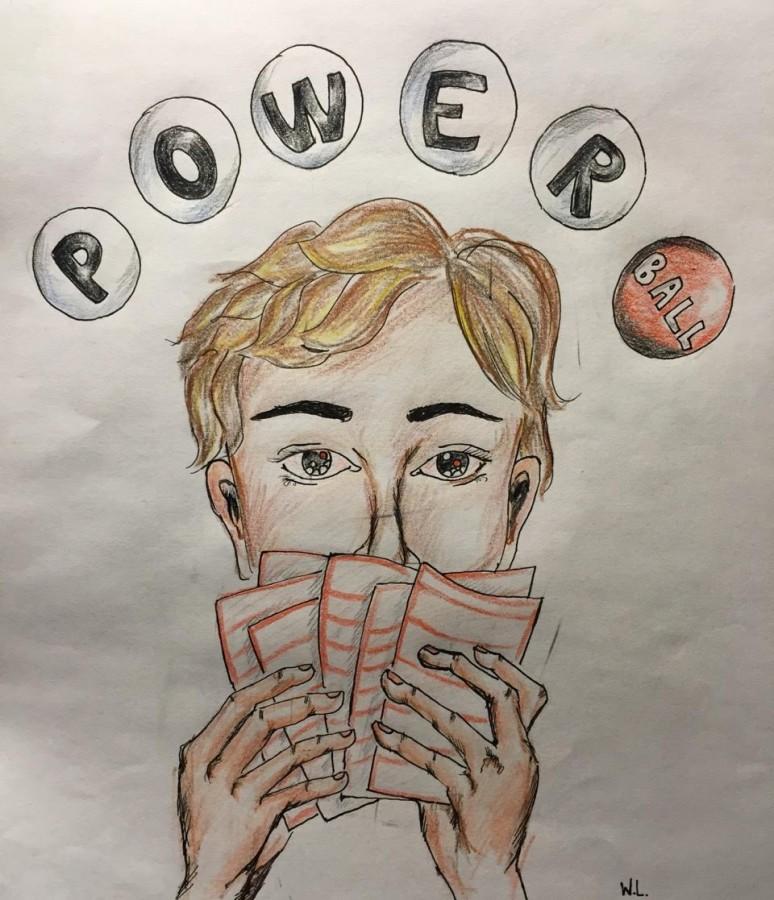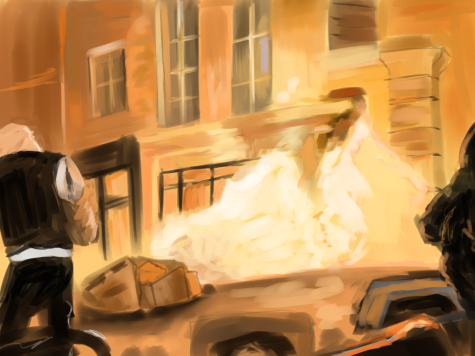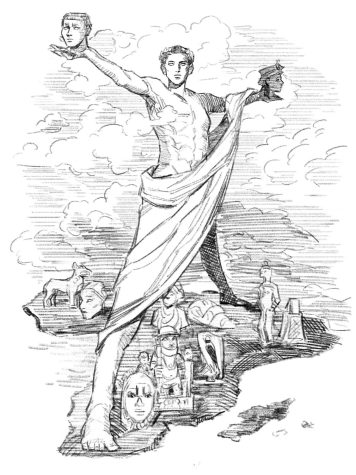Powerball Fever: A Lottery Obsession
February 22, 2016
Buy a house, give to charity, quit a job, travel the world—these are just some of the things people would do if they won the lottery.
For example, Marlo Smith ‘17 confesses, “If I won the lottery, I would probably set aside enough to put me and my siblings through college, give enough to my parents for retirement and insurance, invest in the stock market, donate to charity, go on a shopping spree, and plan international vacations for me and my friends.”
On January 13, 2016, the biggest Powerball in history was drawn. This Powerball consisted of $1.6 billion dollars, and it was said that if no one won, the winnings would rise up to $2 billion.
Powerball fever was present in the participating 44 states and US territories that sold lottery tickets. The odds of winning the lottery are 1 in 292.2 million; despite these odds, 635,103,137 lottery tickets were sold for the drawing on January 13th.
Only 4% of people playing won any prizes at all. These prizes ranged from $4 to the target amount, based on matches with the Powerball number and five additional numbers. Even winning $4 is difficult, with odds of 1 in 92. Out of all the people who played the lottery of January 13, only 73 people won $1 million, 8 people won $2 million, and 3 people won (and split) the large prize total of $1.6 billion.
The real question is, why do so many people play the lottery if the chances of winning are so small?
Matthew White ‘19 thinks, “It sounds good because it is possible for your whole life to change for the better.” Buying a lottery ticket induces a sense of hope and happiness, even if it is only for 15 seconds
The number of people playing the lottery in the US has increased in the last few decades, In fact, lottery ticket sales increase during recessions; the $2 lottery ticket price is extremely low compared to the hope of improving financial circumstances. Slick advertising campaigns build on these hopes and dreams of being ultra- rich.
Many Ridge seniors are able to play the lottery because they are 18, the legal age to play. However, the majority of Ridge students will have to wait for their lottery dreams to come true.



